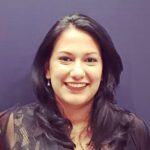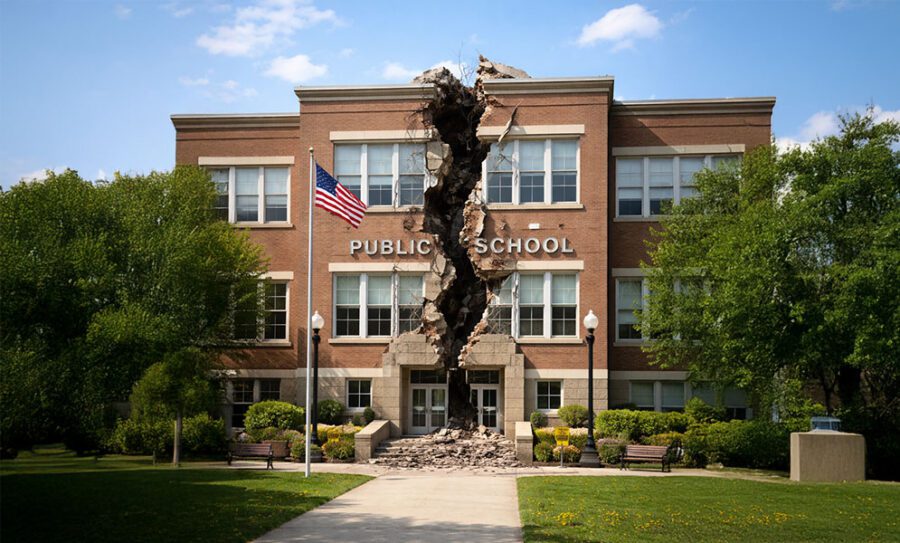G.K. Chesterton once observed that “the true soldier fights not because he hates what is in front of him, but because he loves what is behind him.”
It’s a powerful image—the idea that our deepest convictions aren’t rooted in opposition, but in devotion. We don’t merely stand against what threatens us; we stand guard over what matters most.
The weight of this truth felt particularly heavy in the days following Charlie Kirk’s assassination. His murder shook many of us—not just because of the violence itself, but because of what it revealed about the escalating hostility toward those who dare to debate against popular public opinion. When someone is targeted for their ideas or convictions, the abstract suddenly becomes urgent.
This was the atmosphere when I posed Chesterton’s words, along with a simple question to my students: “What do you love that you would protect?”
The Question That Changed the Room
These students are familiar with big questions; we wrestle with ideas in our Classical Conversations programs all the time. But this question I asked landed differently. The classroom went quiet. Maybe it was the timing, coming so soon after the Kirk incident. Perhaps it was the directness of it, the way it demanded not just intellectual engagement but personal commitment.
Whatever the reason, the quiet that followed wasn’t avoidance. It was consideration.
“What do you love that you would protect?”
One by one, hands began to rise. The answers came quickly at first: “Faith.” “Freedom.” “Family.” Big words. Important words. The kind of answers you give when you know something matters but haven’t quite wrestled with why.
I pressed further. “What about faith would you be willing to protect? What about freedom? We have rights related to these taken from us all the time, so how do we determine what is actually worthy of protecting?”
The room shifted. The easy answers had run their course. Now we were in deeper water.
When Abstractions Become Personal
That follow-up question forced my students to move from categories to commitments. It’s one thing to say you value freedom in general. It’s another thing to identify which specific freedoms you would actually guard when you know it will cost you.
One student reconsidered, “The freedom to say what I actually believe without getting attacked.”
Another jumped in: “The right to keep the opposite sex out of our bathrooms—to just acknowledge basic reality without being called hateful.”
Someone else said, “The ability to defend my family if someone breaks into my house.”
Another student voiced, “My faith in Christ specifically, not just having some generic religious belief.”
These weren’t hypothetical concerns. These were live issues, things their generation faces daily. Speech codes that punish truth-telling. Bathroom policies that prioritize ideology over safety and privacy. A cultural climate where defending yourself or your family is increasingly seen as problematic. A world where expressing convictions can cost you physical safety.
The abstractions were becoming concrete. The broad principles were taking on flesh and bone.
The Foundation of All Freedom
As I listened to my students wrestle with these questions, I realized something crucial: every freedom they named—speech, safety, faith, family—depends on a single, foundational freedom that most people never consider.
Financial independence.
It sounds mundane compared to the lofty ideals my students were defending. But here’s the reality: whoever funds something controls it. Always. Without exception.
This is why the Education Independence Initiative recognizes that the financial obligation for education remains on parents, with support from private, voluntary benefactors.
Think about what my students said they would protect:
- The freedom to speak the truth without being attacked.
- The right to acknowledge biological reality.
- The ability to hold and express Christian convictions.
Every single one of these freedoms exists in our classroom precisely because parents—not the state—fund this education.
When the state pays for education, it decides what can be said, what must be believed, and what views are acceptable. This isn’t theory. It’s an observable reality in every public institution across the country. The bathrooms that my students want protected? State-funded schools opened them to the opposite sex. The speech they want to preserve? Policed. The faith they want to practice? Systematically excluded.
But here, in this privately funded environment, my students can say “the opposite sex doesn’t belong in our bathrooms” without facing expulsion. They can defend their faith without apology. They can speak freely because their parents—not bureaucrats—pay the bills.
This is the foundation. Without financial independence, every other freedom becomes negotiable.
The Cost of True Independence
The families in our Classical Conversations community have made a choice that many find incomprehensible: they pay twice for education. They pay taxes that fund public schools their children don’t attend. Then they pay again—tuition, curriculum, time, sacrifice—to provide the education they actually want.
They often make this choice with single incomes. Simplified lifestyles. Forgoing vacations, newer cars, and bigger houses. These families have counted the cost and decided their children’s freedom is worth it.
Because they understand something fundamental: when you accept “free” education from the state, you’ve surrendered control. The state that funds gets to decide what your children learn about gender, sexuality, morality, history, and truth itself. You might object to the curriculum, but you have no real authority to change it. After all, you’re not the customer. You’re the recipient of a “free” service that comes with non-negotiable terms.
But when parents fund education directly—or when communities of believers voluntarily support one another—power dynamics shift. Parents become the decision-makers. They can choose curricula that align with their values. They can hire teachers who share their convictions. They can create environments where truth isn’t censored and reality isn’t denied.
What Financial Independence Protects
Let me be specific about what privately funded education makes possible—the very freedoms my students identified as worth defending.
It protects parental authority. When parents fund education, they lead. They’re not petitioning the state for permission or begging school boards to respect their values. They’re exercising the God-given authority that comes with the responsibility to form their children. The Education Independence Initiative affirms that parental rights come from God and should be protected from the state—and financial independence is how that protection becomes a practical reality.
It protects education’s sacred purpose. All education is religious in nature; every educational philosophy flows from foundational beliefs about truth, meaning, and human purpose. When education is freed from state control, families can pursue education aligned with their deepest convictions, whether that means knowing God and making Him known, transmitting sacred traditions, or forming children according to their faith’s understanding of the good life. The moment you accept state funding, you accept state jurisdiction over what can be believed, taught, and practiced. Private funding preserves sacred space for families of all faiths to educate their children according to their conscience.
It protects intellectual freedom. When education operates in a free market—where schools must persuade parents rather than coerce them through compulsory funding—truth flourishes. We conclude that a flourishing society emerges from a free market of ideas. Bad ideas fail because families can choose better alternatives. Good ideas succeed through results, not governmental mandate.
It protects the next generation. The students in my classroom aren’t learning to navigate oppressive speech codes or to mouth approved opinions while thinking forbidden thoughts. They’re learning to think clearly, speak truthfully, and defend their convictions with courage. This formation is possible because their education exists outside the control of those who would punish such independence.
Understanding Freedom Within Framework
Here’s where we need to be clear about what free-market education actually means, because freedom doesn’t mean the absence of all boundaries. It means the freedom to choose which boundaries you’ll operate within.
Classical Conversations has defined a specific mission, educational philosophy, and set of convictions. This framework isn’t a restriction of freedom—it’s an expression of it. CC exercises its right as an organization to stand for something particular, to maintain standards that reflect its values, and to invite families who share those convictions to participate.
This is how free markets work. Apple defines what iOS will be. Customers choose whether that framework serves them. Chick-fil-A closes on Sundays. Customers decide if that aligns with their values. Classical Conversations maintains biblical standards and classical pedagogy. Families determine if that’s the education they want.
The freedom isn’t found in demanding that every organization accommodate every preference. It’s found in the ability to choose, or create, organizations that reflect your values.
Boundaries as Voluntary Agreements
The standards within privately funded education—what can be taught, how communities operate, what values guide decision-making—aren’t imposed on unwilling subjects. They’re agreements entered into voluntarily by people who want to participate in this particular educational approach.
This is fundamentally different from state-controlled education, where families have no choice but to accept whatever boundaries the government sets. In our community, every boundary represents a shared commitment, not external coercion.
Leaders and families freely choose to operate within the privately funded educational system’s defined boundaries because they align with shared convictions. The free market provides options precisely so people can choose communities that reflect their values.
And yes, this means boundaries exist. But these boundaries aren’t evidence of restricted freedom—they’re evidence of a defined mission that families voluntarily support because they want a specific approach to education.
When Ownership Becomes Clear, Freedom Becomes Sustainable
Tension often arises not from limits themselves, but from unclear ownership. When expectations aren’t transparent, when authority is ambiguous, when one party tries to exercise control they don’t actually have—that’s when people feel their freedom is threatened.
But when both privately funded education programs and participants understand who holds authority over what, freedom becomes sustainable. Participants own their choice to affiliate, their decision about where to invest their resources, and their authority over their own children’s education within the options they’ve chosen.
This clarity protects everyone. It ensures families know what they’re choosing. It allows tutors or directors to serve confidently within defined parameters. And it preserves the marketplace of ideas by ensuring organizations can maintain distinct identities rather than becoming homogenized by every competing preference.
The Charlie Kirk Lesson
The assassination of Charlie Kirk taught us something crucial: public debates about truth come with a cost. Sometimes a terrible one.
But here’s what private education teaches: creating environments where truth can be spoken, where reality can be acknowledged, and where faith can flourish also comes with a cost. A different kind of cost, but a real one nonetheless.
The families in our community have chosen to pay it. Not because it’s easy. Not because they have money to spare. But because they’ve looked at what the alternative produces—students who can’t define “woman,” who are punished for their faith, who’ve been taught that disagreement is violence—and they’ve said “not my children.”
They’ve decided that the freedom to form their children according to truth is worth more than financial comfort. That preserving their authority as parents is worth more than a “free” education. Protecting their children’s ability to think and speak freely justifies the sacrifice.
From Conviction to Action
It takes courage to protect what you love. But it also takes resources.
This is why financial independence is foundational to educational freedom. It’s the difference between having opinions about your children’s education and actually having authority over it.
So let me ask you the same question I asked my students: “What do you love that you would protect?”
And then the harder questions: “What about it? What specifically? And what are you willing to pay to protect it?”
My students said they would protect free speech, biological reality, the right to self-defense, and their Christian faith. Every one of these freedoms exists in their educational environment because their parents made a financial sacrifice to create and sustain it.
Are you willing to move from sentiment to sacrifice? From agreeing that educational independence matters to actually funding it?
Because at the end of the day, we don’t protect what doesn’t matter. We protect what we love. And we fund what we actually want to exist.
Our children—their freedom to be formed in truth, to learn without state interference, to think freely, to grow in communities sustained by voluntary commitment rather than governmental coercion—deserve both our protection and our investment.
The final question remains: “What about these freedoms will you actually defend? Not just with words, but with your wallet?”





